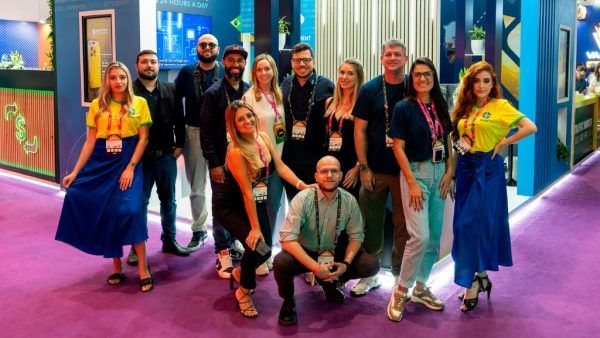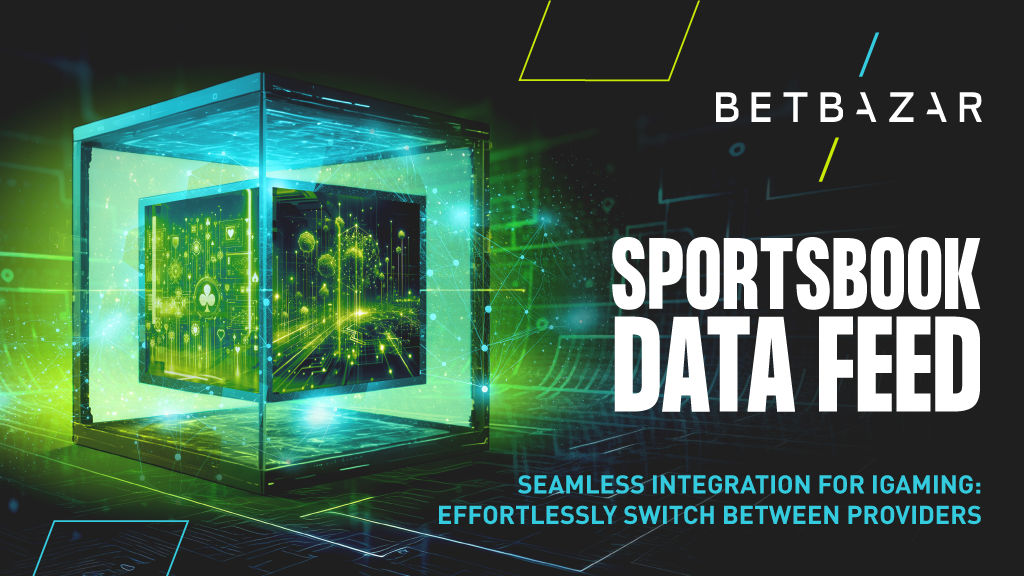Sweden’s gambling regulator, Spelinspektionen, has recently confirmed the approval of additional Business-to-Business (B2B) licenses for suppliers within the iGaming industry
This move comes as part of the regulator’s efforts to ensure a safer and more transparent market while promoting healthy competition among industry stakeholders.
First B2B Licenses Issued in Sweden
In a groundbreaking move, Spelinspektionen has issued the first B2B supplier licenses in Sweden. According to Gaming Intelligence, the regulator granted the licenses to seven industry suppliers, including well-known brands such as EveryMatrix, Finnplay, and GiG. This development indicates the regulator’s commitment to fostering a regulated and competitive iGaming market that benefits both operators and consumers.
Sweden Introduces B2B Licensing for Providers
GoodLuckMate highlights Sweden’s introduction of B2B licensing for iGaming providers as a significant regulatory change aimed at ensuring a transparent and well-regulated market. By implementing the B2B licensing system, Spelinspektionen can better monitor and control the activities of suppliers and their interactions with operators, ultimately promoting responsible gambling and consumer protection.
Swedish Gambling Regulator Approves More B2B Gaming Suppliers
Spelinspektionen has continued its licensing efforts, approving even more B2B gaming suppliers to operate in the Swedish iGaming market. Gaming Intelligence reports that the regulator has granted licenses to prominent suppliers such as BetConstruct, SBTech, and Soft2Bet. This expansion of the list of licensed suppliers is expected to encourage innovation and growth within the Swedish iGaming sector. Jimmie Nyström told SiGMA News: “This news is a positive development for the Swedish gambling industry as it allows for more companies to provide innovative services to licensed operators. We applaud Spelinspektionen for their thorough review process, and we look forward to working with them to maintain the highest standards of integrity and compliance in the Swedish gambling market.”
The Implications of B2B Licensing for the Swedish iGaming Market
The approval of additional B2B licenses by Spelinspektionen is expected to have a range of positive implications for the Swedish iGaming market. For operators, the increased number of licensed suppliers will likely lead to greater choice and flexibility in selecting technology partners and service providers. This, in turn, can spur innovation and drive the development of new gaming products and solutions that cater to the evolving needs of consumers.
For consumers, the increased competition among licensed B2B suppliers may result in a more diverse and engaging gaming experience. With a broader range of gaming options available, consumers will have more opportunities to find games and services that suit their preferences and interests.
The B2B licensing system also offers several advantages for suppliers themselves. By obtaining a B2B license, suppliers can demonstrate their commitment to responsible gambling, fair play, and consumer protection, which can enhance their credibility and reputation within the market. This, in turn, can help suppliers to attract more clients and build stronger relationships with operators and other industry stakeholders.
Furthermore, the B2B licensing system can help to create a level playing field for suppliers of all sizes and business models. By ensuring that all suppliers are subject to the same rules and regulations, the licensing system can promote fair competition and reduce the potential for regulatory arbitrage. This, in turn, can encourage innovation, collaboration, and the sharing of best practices among suppliers, ultimately benefiting the entire iGaming ecosystem.
For the wider iGaming industry, the introduction of B2B licensing in Sweden can serve as a model for other jurisdictions to follow. By creating a transparent and accountable environment for B2B suppliers, regulators can help to promote responsible gambling practices, consumer protection, and a healthy, competitive market that benefits all stakeholders.
Challenges and Opportunities in the Swedish iGaming Market
While the introduction of B2B licensing in Sweden presents many opportunities for the iGaming industry, it also comes with its share of challenges. For one, suppliers may face additional costs and administrative burdens associated with obtaining and maintaining a B2B license. These costs may be particularly burdensome for smaller suppliers, who may lack the resources and expertise necessary to navigate the complex regulatory landscape.
Moreover, some industry stakeholders have expressed concerns that the B2B licensing system could lead to increased regulatory scrutiny and intervention, potentially stifling innovation and growth within the market. To address these concerns, it will be essential for regulators to strike the right balance between ensuring consumer protection and promoting a competitive and innovative iGaming sector.
Despite these challenges, the potential benefits of the B2B licensing system in Sweden are likely to outweigh the drawbacks. By fostering a transparent, well-regulated, and competitive market, the B2B licensing system can help to drive growth and innovation in the Swedish iGaming sector, ultimately benefiting operators, consumers, and the wider industry.
The Future of B2B Licensing in Sweden
As the Swedish iGaming market continues to evolve, it is expected that the B2B licensing system will play an increasingly important role in shaping the industry’s future. Regulators and industry stakeholders must continue to work together to ensure that the licensing system remains responsive to the changing needs of the market while protecting the interests of consumers and promoting responsible gambling.
Jimmie Nyström from casinon.com told SiGMA News: “This news is a positive development for the Swedish gambling industry as it allows for more companies to provide innovative services to licensed operators. We applaud Spelinspektionen for their thorough review process, and we look forward to working with them to maintain the highest standards of integrity and compliance in the Swedish gambling market.”
One area in which further collaboration may be needed is in the development of standardised technical requirements and best practices for B2B suppliers. By working together to establish common standards and guidelines, suppliers can help to promote interoperability and reduce the potential for friction and confusion within the market.
Additionally, regulators may need to consider the potential for cross-border cooperation and harmonisation of B2B licensing requirements. With many iGaming suppliers operating in multiple jurisdictions, the establishment of a more unified and consistent regulatory framework across borders could help to streamline the licensing process and reduce the burden on suppliers.
In Conclusion
Spelinspektionen‘s recent approval of additional B2B licenses for iGaming suppliers demonstrates the regulator’s commitment to fostering a competitive and well-regulated market in Sweden. This move is expected to benefit operators, consumers, and the wider industry by promoting innovation, consumer protection, and responsible gambling practices.
As the Swedish iGaming market continues to evolve, it will be crucial for all stakeholders, including regulators, operators, and suppliers, to work together to ensure a sustainable and responsible industry. By embracing regulatory changes such as the introduction of B2B licensing, the Swedish iGaming market can continue to thrive and serve as a model for other jurisdictions seeking to create a transparent, competitive, and consumer-focused gaming landscape.















